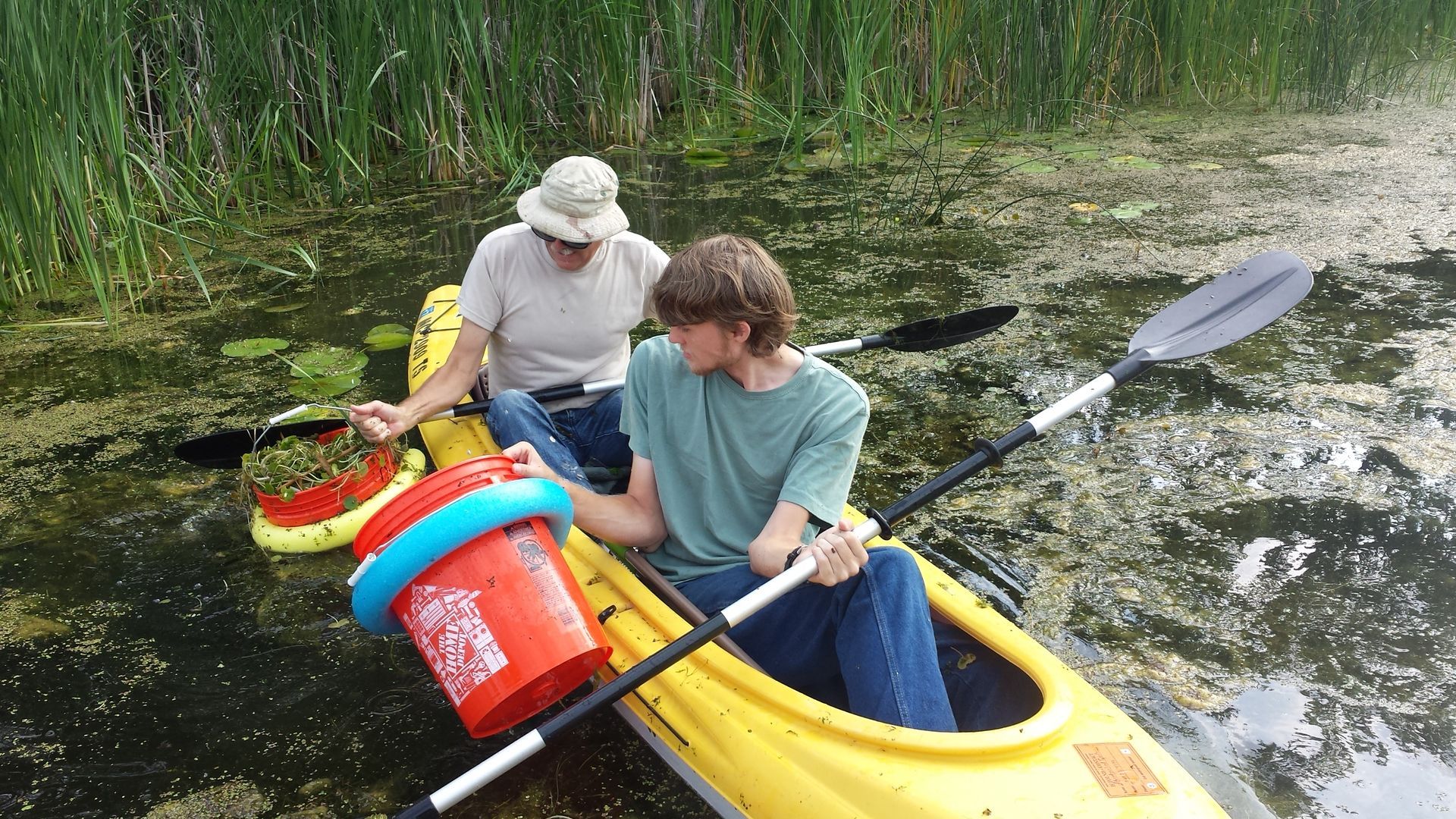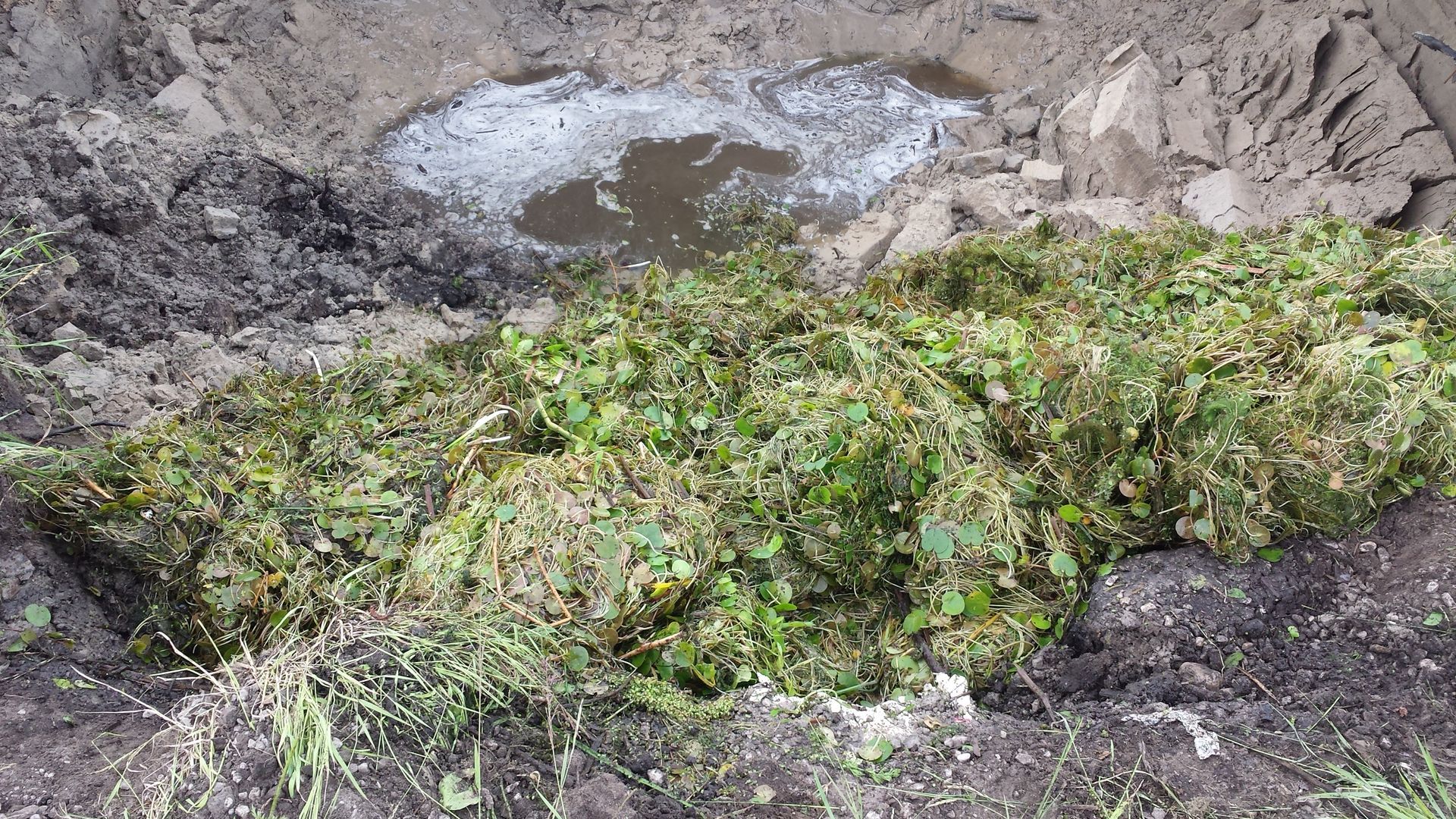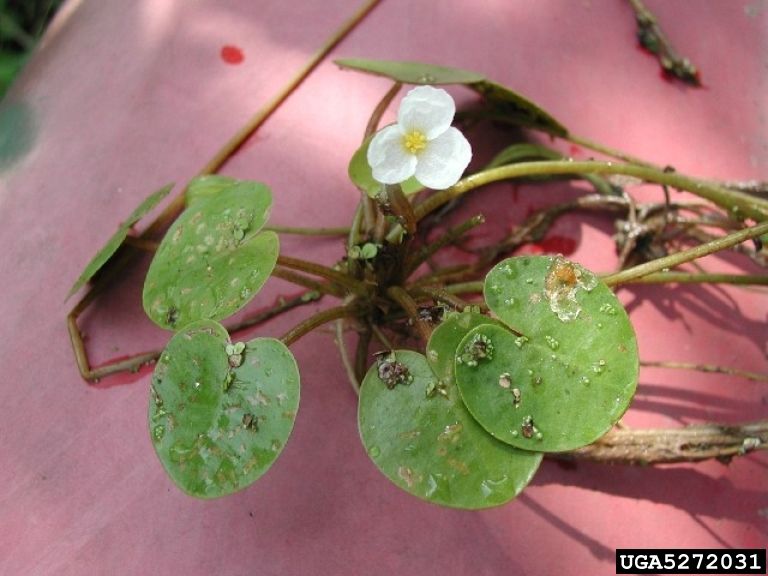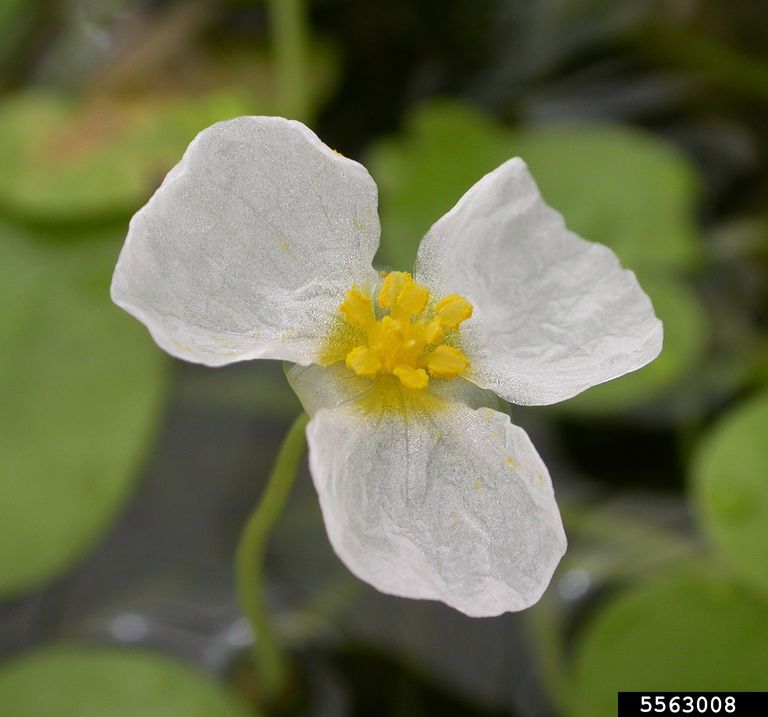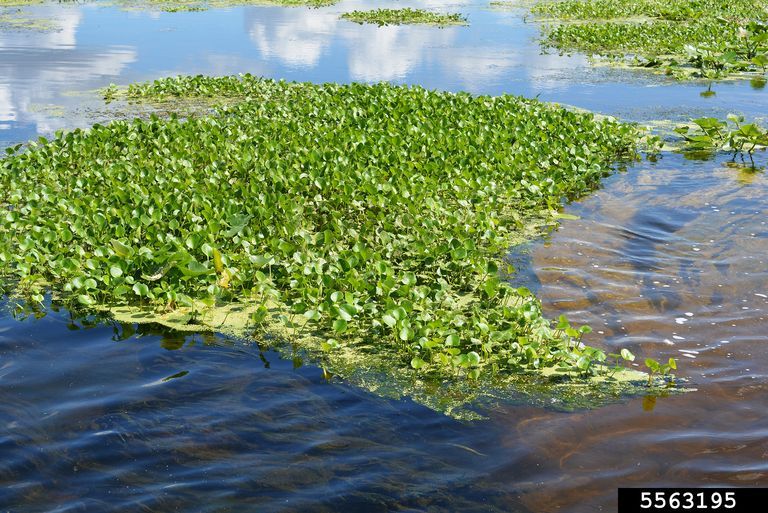OTG Volunteers Needed: Invasive Aquatic Species Removal at Shiawassee River State Game Area
MUCC’s On the Ground program is returning to the Shiawassee River State Game Area to aid in the removal of a persistent aquatic invasive species, European frog-bit (Hydrocharis morsus-ranae). Volunteers are needed on Saturday, July 26th, from 9 AM – 12 PM. For more details and to register, click HERE.
About the Project
This project will work to enhance the habitat within the game area for waterfowl and other wildlife. Volunteers will meet at the Shiawassee River State Game Area DNR Field Office at 225 E. Spruce St., St. Charles, MI 48655 (43.300191, -84.140384). Closed-toed shoes and long pants are recommended. This event will take place rain or shine, except in the case of severe weather, so please dress accordingly. Volunteers should plan to be outside for the duration of the event. Necessary equipment, including work gloves and waders, will be provided. Volunteers with their own waders are welcome to bring them. We also ask for volunteer assistance in bringing a few wide leaf rakes with a string attached to the end to help retrieve some of the invasive plants from the shore. Some rakes will be provided for volunteers courtesy of MUCC and the DNR.
Why Remove Frog-bit?
European frog-bit is considered a prohibited species in Michigan, making it illegal to possess, introduce, or sell it except under certain circumstances according to the Michigan DNR. Similar to a lily pad, this aquatic invasive has floating, heart-shaped leaves that range from 0.5 to 2.5 inches, stemming from a rosette. The underside of the leaf is a purple-red hue, and a singular white, three-petaled flower with a yellow center can bloom from June to August. In contrast to lily pads rooted into the substrate below the surface, frog-bit is free-floating.
This species of aquatic invasive is invading popular hunting destinations beyond the Shiawassee River. Once observed, the DNR asks citizens to photograph, mark the location, date, and time to be reported to the EGLE Aquatic Invasive Species Program (EGLE-WRD-AIP@Michigan.gov) or to MISIN online or the app. Native to Europe, Asia, and Africa, frog-bit is found in the northeastern United States, Washington, and Canada as a non-native species of slow-moving rivers, inlets, ponds, bayous, and ditches. As a free-floating plant, this species can form dense mats at the surface, impeding boat traffic, preventing native food and habitat for waterfowl and fish, and reducing oxygen and light in the water.
Learn More
As recreationists, boaters should practice washing their boats between water bodies to remove any unwanted aquatic hitchhikers to help limit the spread. To get more involved in conserving Michigan habitat, visit mucc.org/on-the-ground for a list of upcoming projects. MUCC’s On the Ground program works to continue the organization’s mission to conserve, protect, and enhance Michigan’s natural resources. Some of our habitat projects include native plantings, brush pile building (‘rabbitat’), invasive species removal, and river cleanups. Families and people of all ages can contribute to our projects, and registered volunteers receive lunch and a free appreciation gift for their efforts.
Recent Posts


